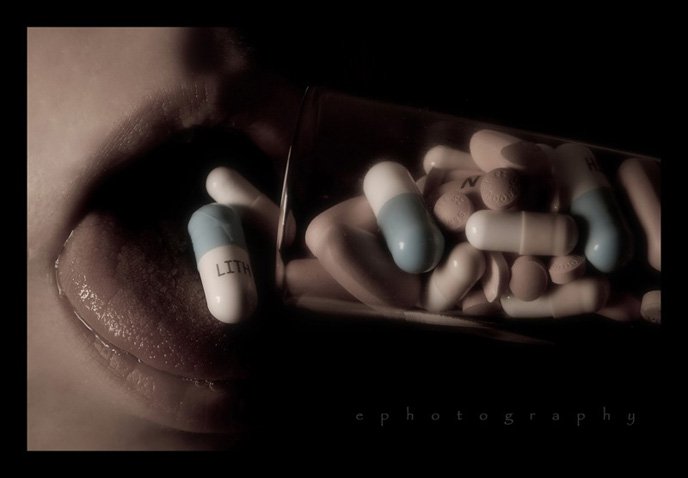 How long shall they kill our prophets while we stand aside and look?”
How long shall they kill our prophets while we stand aside and look?”
~Bob Marley
I met Ken by my own force. Seeing a comment he’d left on a friend’s blog post, I felt I needed to know him. Looking deeper, it turned out that he had a book about battling mental illness.
Fast forward just two weeks, and I’m sitting glued to Ken’s book while visiting family, one person after another coming in every little while to comment on how far I’d read. I finished it in two days. It wasn’t short. And if it hadn’t been for mealtimes, politeness, and sleeping, I’d have read it in one.
What struck me, throughout Ken’s entire mental illness experience (which included hospitalization, hallucinations, and eventual psychiatric commitment) were three things:
- Everyone around him thought he was crazy and dangerous while Ken gained abilities that some people vie to access with daily meditation and ceremony
- Our current mental health care system hasn’t progressed since the asylum days as much as we’d like to think (physical straitjackets replaced by chemical ones)
- Mental illness is a dream so bad that, if you’re lucky or well-supported, you might just realize you’re dreaming and wake up in a world where everyone else is still asleep
Ken and I swapped books. He was reading The Love Mindset while I read Detour From Normal. As he consumed my book in equally record time, he became incredibly emotional in his communications. He told me he read my eulogy to Vironika Wilde and that she sounded like every woman he met in the psych wards. He told me he was fully in the love mindset when he was manic, but since he didn’t end up there purposefully, he wasn’t seen as a guru or a master. He was just another crazy guy who needed to be doped up.
He realized he wasn’t the only one, he wasn’t crazy, and he certainly didn’t need medications. He needed some sleep, some support, and some encouragement to become the healer that he’s now blossoming into.
After I consumed its satisfying ending, Ken’s story planted itself in my mind, interweaving his memories with my own and with the memories of people I’ve met.
An old friend of mine, whose art is so captivating you could stare at it for hours, was put on Ritalin for drawing in math class.
Ken weaving tales of a utopian society, reaching out to help people believing his presence could heal them, and seeing the world through a lens of perfection—court-ordered Lithium.
My first vivid hallucinations when I was 18. My boyfriend at the time looking at me like I was a psycho. And then, the incredible amounts of nightmares and flashbacks that accompanied my healing process—all of them allowing me to process through traumatic, painful events. And what if I’d thought I was a psycho? What if I took the pills I was offered? Would I still be here?
My favourite book of all time—Zen and the Art of Motorcycle Maintenance—the main character becoming obsessed with discovering the truth about reality, a truth so beautiful and ancient that few could deny it, only to be given electroshock treatment for his so-called dangerous mental illness.
A woman who reached out to me to tell me about keeping her son, clearly exhibiting symptoms of schizophrenia, away from doctors and pills—the son recovering fully a year and a half of sleepless nights later.
Sam Shelley being diagnosed with bipolar and, after engaging in frequent and dedicated meditation, coming forth symptom-free and ready to help heal the world.
With all these stories in my head, it was hard to sleep. A darkness loomed over me—the darkness of a realization too painful to digest.
Our mental health care system is breaking people. We have no room for the sacred, only normal.
The narrow range of accepted behaviour and emotion expected from us is more restricting than most people realize. That is, until we experience beyond it. Until we’re judged. Until we don’t fit in. Until we’re told we need to fix ourselves.
I’m not sure how I ended up stumbling into this article today, but you know how these things happen. It’s called What a Shaman Sees in a Mental Hospital.
The symptoms we commit people for, Dr. Somé’s village recognizes as marks of a healer. They honour, respect, and nourish the very same patterns that we condemn, isolate, and drug.
The article is worth a read. To be honest, I have a hard time with his explanations for why he says mental illness happens, but that is of no importance. I don’t need to believe how he says it happens to agree with him about the fact that it is happening.
We’re taking people with a completely different range of perception and calling it wrong.
We’re weeding out our geniuses. We’re killing off our prophets. We’re drugging our messiahs.
Were she alive today, Sylvia Plath would be on anti-depressants. Salvador Dali would be on anti-psychotics. Beethoven would be on Lithium. Newton would likely be committed as well as heavily drugged for his multiple, pervasive mental illness symptoms.
Don’t even get me started on Jesus Christ.
If you’re thinking that medications would have decreased these people’s suffering while allowing their gifts and talents to be explored, I’d suggest reading Ken’s book for a sobering look at the effects of Lithium. Then, get on Google and look up some common mental illness medications, their symptoms, and their side effects.
Perhaps the drugs would have prevented some suicides, though even that is questionable (as you’ll find on your search—some medications have been linked to suicide and homicide). But suppose they had. Then we’d have extended their lifetimes while they would have faded into the background, known by few, remembered by no one.
The real tragedy is that, in Dr. Somé’s village, though they respect the “mentally ill” healers’ journeys, they take precautions knowing that these people require an incredible amount of support through this time.
How unfortunate that, in our society, those who refuse to take medications don’t have anything to catch them or support them. There’s no group of people willing to support and honour their new abilities. No one to celebrate their experiences. No one to listen to them.
There’s only the pain and the desire to get rid of it. Hence, the ledge.
So what do we do? Where do we go? Where could Ken have gone and whom could he have talked to about his experiences? How could Sylvia Plath have used her gifts without them killing her in the end? How can the thousands of people in our culture who are suffering from mental and emotional distress get some genuine support, some help, some respect?
How can we turn our mental health centers into places of healing and growth, rather than confinement and apathy? How can we nurture the experiences of people who are perceiving differently from us in such a way that they can become stable, and we can become wiser for having taken their perspective?
How can we all come together and build the sort of society that Dr. Somé speaks of, the sort of society that already exists somewhere—one that respects people, no matter what they act, look, or feel like?
Most importantly, how can we take mental illness activism past this stage it’s stuck at now where we say “it’s not like cancer, don’t say get over it,” but the ones who go through it still suffer, still perceive it all as “bad,” still face a lower quality of life? Basically, how can we stop treating these experiences as diseases and start accepting them as gifts?
How can we recognize the healers in those who are, themselves, healing?
How can we all come together and make a world where we connect from our deepest core, from our interconnected, limitless potential? How can we learn to see beyond differences of habit and thought into the beautiful center that resides within each of us?
How can the scientists, the spiritualists, the philosophers, and the dancers all come together and speak of their unique perspectives, each learning from the other? How can the manic, the depressed, the bored, the generous, and the needy come together, dropping their labels, and learn from each other?
How can each human life be allowed to matter? How can we build a world where no one has to rot in a hospital or a cage? How can we build a world where everyone simply wants to be good and do good? How can we stop arguing, for a second, so that we can hear ourselves agreeing?
Honestly, I don’t know. I don’t. But this is not really about answers. This is about questions.
I read in an old book once: “Confusion is the beginning of wisdom.”
Not knowing is the beginning of knowing.
And that’s what this is all about. This is about asking, and continuing to ask, until we make it work. This is about standing up and pointing out that the current state of our mental “health” care is not human, it’s mechanistic. As we’ve seen in cases like Ken’s, it’s cruel. And, as we’ve seen in cases like Robin Williams, it doesn’t work.
I hope no one takes this personally, because even if you’re working every day to support the system and doing your best, you are not the system. None of us are the system. There is no system. There’s only us—human beings—doing our best.
Our inability to think differently about mental illness no one’s fault, but it is our responsibility. We can all come together and decide to do better. We deserve it.
Your ideas on this are welcome. That’s where it all starts—brainstorming and sharing. You’re invited to do so below in the comments section.
source:
written by
www.vironika.org
Source Article from https://worldtruth.tv/rethinking-mental-illness-are-we-drugging-our-prophets-and-healers/
Related posts:
Views: 0
 RSS Feed
RSS Feed

















 June 6th, 2018
June 6th, 2018  Awake Goy
Awake Goy 


 Posted in
Posted in  Tags:
Tags: 
















